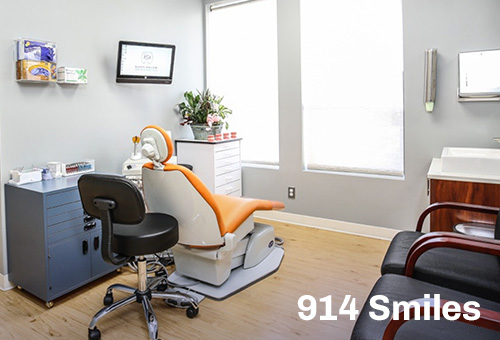
When it comes to our pearly whites, most of us don’t spend too much time thinking about how our teeth align. However, the alignment of our teeth can significantly impact not just our smile, but our overall oral health. In this blog, we’re diving into the world of bites – specifically, overbite vs. normal bite. What’s the difference? How can you tell if you have an overbite? And what can be done about it? Let’s get into it!
What Is An Overbite?
So, what exactly is an overbite? Picture this: you’re biting into your favorite sandwich, and your upper teeth sit nicely in front of your lower teeth. That’s a normal bite. But if your upper teeth extend too far over your lower teeth, you’ve got yourself an overbite.
An overbite, also known as a deep bite, occurs when the upper front teeth overlap significantly with the lower front teeth. While a slight overbite is pretty common and usually harmless, a more pronounced version can cause various issues, from aesthetic concerns to dental problems.
How to Identify If You Have an Overbite
Now, you might be wondering, “How do I know if I have an overbite?” Well, it’s easier than you think. Here are some signs to look out for:
- Visual Check: Stand in front of a mirror and smile. If you notice your upper teeth covering a significant portion of your lower teeth, you might have an overbite.
- Bite Down: When you bite down, if your upper teeth cover more than 30% of your lower teeth, it’s a sign of an overbite.
- Jaw Pain: An overbite can sometimes cause discomfort or pain in your jaw due to the misalignment.
- Wear and Tear: Excessive wear on your front teeth can be a clue, as an overbite can cause uneven pressure on your teeth.
Causes Of An Overbite
Curious about why overbites happen? There are several causes:
- Genetics: Just like the color of your eyes or the shape of your nose, the alignment of your teeth can be inherited. If your parents had an overbite, there’s a good chance you might too.
- Thumb Sucking: Childhood habits like thumb sucking or prolonged use of a pacifier can push the upper teeth forward, leading to an overbite.
- Tongue Thrusting: Some people develop a habit of pushing their tongue against their upper teeth when swallowing, which can contribute to an overbite.
- Poor Dental Habits: Neglecting oral hygiene or avoiding regular dental check-ups can lead to problems like overbites, as untreated dental issues can impact tooth alignment.
Overbite Vs. Normal Bite
Alright, so how does an overbite stack up against a normal bite? Let’s break it down:
- Appearance: In a normal bite, the upper teeth slightly overlap the lower teeth, providing a balanced and aesthetically pleasing smile. In an overbite, the upper teeth significantly overlap the lower teeth, which can affect the overall appearance of your smile.
- Functionality: A normal bite ensures that your teeth come together properly when you chew, speak, and swallow. An overbite can lead to improper alignment, making these everyday activities a bit more challenging.
- Oral Health: Normal bites are generally easier to maintain in terms of oral hygiene. Overbites, however, can lead to issues like tooth wear, gum disease, and jaw pain if not properly managed.
What Are Different Types Of Overbites?
Believe it or not, there are actually different types of overbites. Let’s take a look:
- Vertical Overbite: This is the most common type, where the upper teeth overlap the lower teeth vertically. It’s what most people think of when they hear “overbite.”
- Horizontal Overbite: In this type, the upper teeth jut out horizontally over the lower teeth. This can sometimes be referred to as “buck teeth.”
- Skeletal Overbite: This type is caused by the position of the jawbones rather than just the teeth. It’s often due to genetics and can be a bit more complex to treat.
How To Fix Overbite?
- If you’re dealing with an overbite, don’t fret! There are plenty of treatment options available. Here’s a rundown of some effective ways to fix an overbite:
- Braces: Traditional braces are a tried-and-true method for correcting overbites. By applying continuous pressure on your teeth, braces gradually move them into the desired position. It might take some time, but the results are worth it!
- Invisalign: If the idea of metal braces doesn’t thrill you, Invisalign could be a great alternative. These clear, removable aligners are custom-made for your teeth and work similarly to braces, without the noticeable hardware.
- Retainers: For minor overbites, retainers can be effective. They’re usually used after braces to maintain the new alignment of your teeth.
- Orthognathic Surgery: In severe cases, especially those involving skeletal overbites, surgery might be necessary. Orthognathic surgery involves repositioning the jaw to achieve a more balanced bite.
- Tooth Extraction: Sometimes, removing a tooth or two can create the space needed to correct an overbite. This is usually considered when overcrowding is a contributing factor.
Maintaining Your New Smile
Once you’ve fixed your overbite, maintaining your new smile is crucial. Here are some tips to keep your teeth in tip-top shape:
- Regular Dental Check-ups: Visit your dentist regularly to ensure your teeth stay in their new, aligned position.
Good Oral Hygiene: Brush and floss daily to keep your teeth and gums healthy. - Wear Your Retainer: If you were prescribed a retainer, wear it as instructed to prevent your teeth from shifting back.
- Avoid Bad Habits: Steer clear of habits like nail-biting, chewing on pencils, or using your teeth as tools – all of which can affect your bite.
Do you have Bite Issues?
At 914 Smiles, we’re dedicated to helping you achieve a healthy, beautiful smile. Our expert orthodontic team offers personalized treatment plans tailored to your unique needs, whether you’re dealing with an overbite or any other bite issue. From traditional braces and clear aligners to advanced surgical options, we provide a range of solutions to correct bite misalignments and improve your overall dental health. Our state-of-the-art technology and compassionate care ensure that you receive the best treatment possible in a comfortable and friendly environment. With 914 Smiles, you’re in good hands—let us help you achieve the smile you’ve always dreamed of! Book a complimentary growth and development check-up with our orthodontist Dr. Rishi Kothari.



